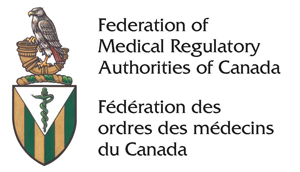View the following document in PDF format.
Framework for FMRAC’s Members on a Regulatory Approach
to Physicians Who Prescribe Opioids
Purpose
The purpose of this Framework is to provide recommendations and propose minimum regulatory standards to FMRAC’s members, i.e., the Medical Regulatory Authorities (MRAs) in Canada, to guide physicians who prescribe opioids to patients with pain and/or an opioid use disorder1.
This Framework complements existing MRA policies and guidance to physicians and strives for pan-Canadian consistency in opioid prescribing. As FMRAC has no authority over its members, it is the discretion of the individual MRAs to adopt or adapt these recommendations as they deem appropriate and/or feasible.
Preamble
Prescription opioids can be effective for patients suffering from pain and/or an opioid use disorder. Physicians have a responsibility to manage their patients’ pain and/or opioid use disorders, and this requires appropriate knowledge, skills and training. It also relies on open communication with patients, compassion and sound professional judgement, to ensure the effectiveness of the treatment plan, maintain the dignity of patients, as well as assure patient and public safety.
It is incumbent on MRAs to develop balanced approaches to support, guide and, where appropriate, identify and monitor physician opioid prescribing, to mitigate and safeguard against the risk of harm to patients.
Ethical, Professional and Legal Obligations
It is expected that all MRAs develop and implement policy that is informed by evidence and/or best practice and considers potential unintended consequences, including but not limited to stigmatizing patients and/or compromising either their health (e.g., rapid tapering or abruptly ceasing medications) or reasonable access to care. FMRAC believes that such policy must also articulate expectations that physicians comply with relevant legislation, including applicable human rights legislation, to ensure non-discrimination against any patient with pain and/or an opioid use disorder who requires opioids. It also expected that all MRAs have clear policies for physicians on accepting new patients and terminating existing patients to ensure their decisions are fair and non-discriminatory to those currently using opioids for pain and/or those with an opioid use disorder.
MRA policies must also emphasize the ethical and professional obligations of physicians, as well as current regulatory policies and guidance in their jurisdiction, on matters including but not limited to:
Principles
FMRAC also recommends that MRA guidance documents, policies and related
communications materials address physicians’ ethical and professional responsibilities to:
It is further recommended that these materials are regularly reviewed and updated to ensure
they do not inadvertently stigmatize patients.
Recommendations Regarding Professional Guidance by MRAs
FMRAC also recommends that the following be adopted by all MRAs in their policies and
professional guidance to physicians when prescribing opioids for acute pain, chronic pain,
non-active cancer pain, opioid use disorders and/or opioid agonist therapy.
Physicians must:
Recommendations to the Medical Regulatory Authorities (MRAs)
FMRAC also recommends that all MRAs, where appropriate and/or feasible:
1cancer pain, palliative and end of life care
Approved by the FMRAC Board of Directors
6 February 2020
